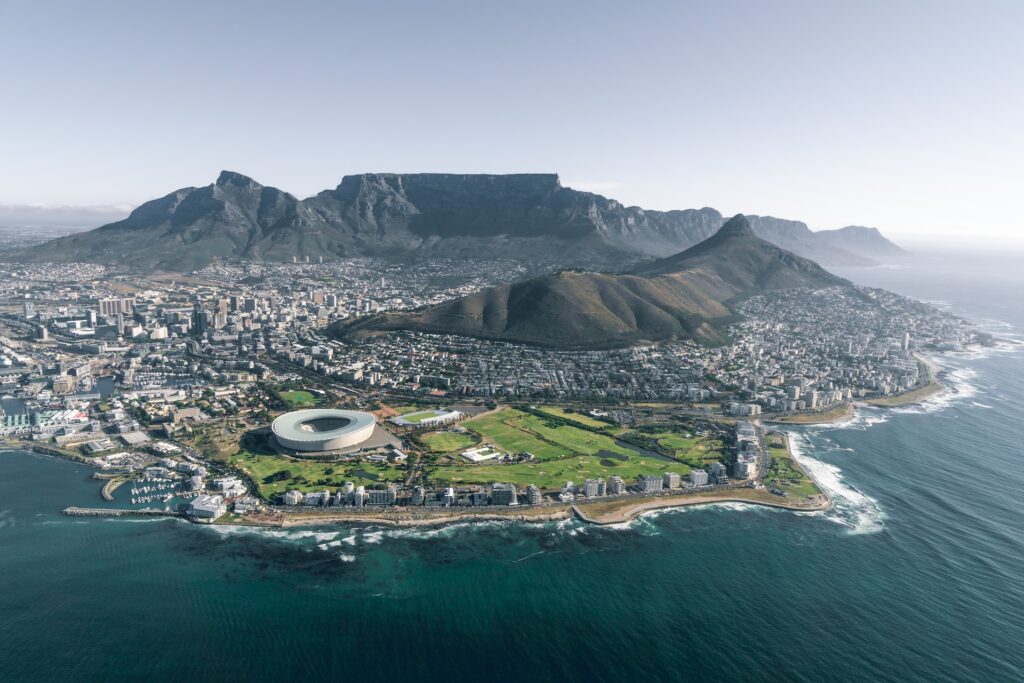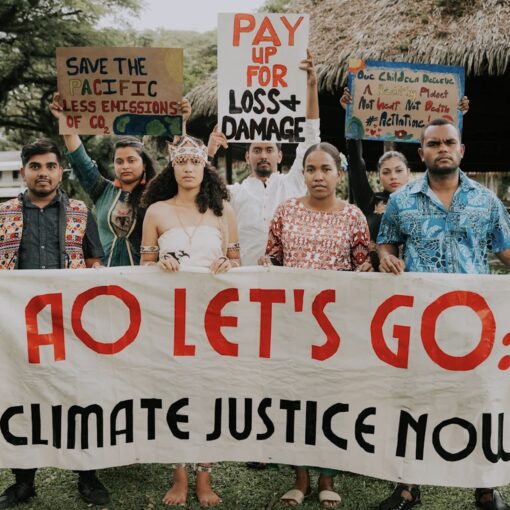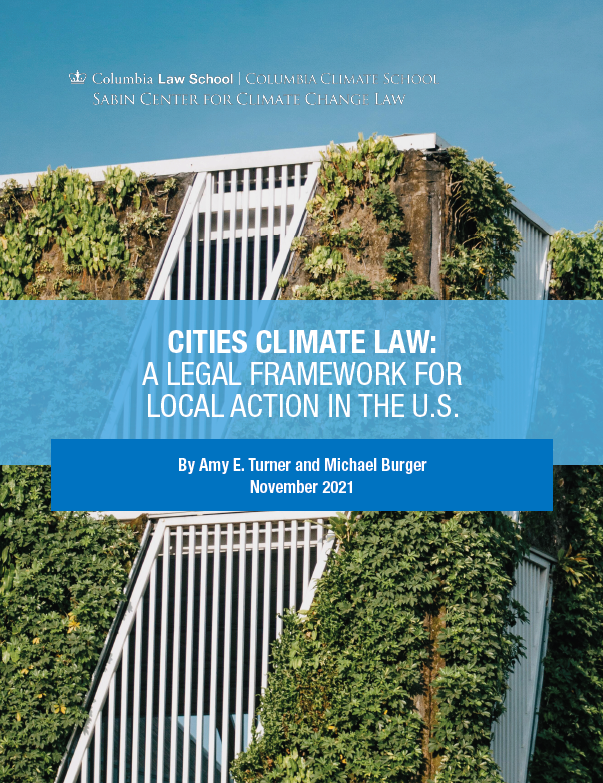
The Sabin Center’s Global Climate Change Litigation Database currently lists over 2000 cases. South Africa has just nine entries – a modest number, easily overlooked in the flood of cases out of the United States, Europe and the rest of the world.
Why are these South African cases worth studying? And what do they say about the future of climate litigation in the country?
This post offers four answers: (1) the success or failure of South Africa’s response to climate change has global significance; (2) its legal system provides the right conditions for impactful climate litigation; (3) the first wave of cases is an early demonstration of this impact; and (4) the conditions are right for more ambitious litigation in the future.
Global significance
South Africa has been described as a “microcosm” of the challenges facing the global response to climate change. Carbon-intensity, social inequality, vested interests, energy insecurity, and climate vulnerability are all present, in acute form.
The country is the largest greenhouse gas (GHG) emitter on the African continent, ranked in the top 15 globally, with higher per capita emissions than many developed countries. This is largely due to its dependence on a fleet of apartheid-era coal-fired power stations which feed the country’s mines and heavy industries.
The apartheid regime created, and was sustained by, this carbon-intensive economy. It left behind the most unequal society on earth. While inequality remains persistent, the coal-based power supply has proved less durable. The power system is failing catastrophically – caused by growing demand, underinvestment, neglect, and corruption – resulting in power cuts of 10 hours a day and sometimes more.
To add to these challenges, South Africa is also extremely vulnerable to the impacts of climate change. It is already warming at twice the global average and has experienced a series of climate-linked disasters, including floods, droughts and heatwaves, that are forecasted to increase in both frequency and intensity.
All of this makes the transition to cheap, renewable energy a necessity for the country. But if not properly managed, the transition may leave behind tens of thousands of workers in the coal sector and allied industries, leading to further inequality and instability.
If a just transition can succeed in South Africa – against the backdrop of these challenges – it could serve as a blueprint for similar efforts in other countries. If it fails, it could be used to discredit and stall these efforts.
Given these stakes, it is no coincidence that South Africa was chosen as the pilot for the Just Energy Transition Partnership (JETP), first announced in 2021 at the 26th meeting of the conference of the parties to the United Nations Framework Convention on Climate Change (COP26). The United States, European Union, Germany, France and the United Kingdom have pledged $8.5 billion to support South Africa’s energy transition. There are now plans to extend similar partnerships to Indonesia, Vietnam, Egypt, Senegal and India.
Fertile ground for climate litigation
The growing literature on global climate litigation shows that litigation can play a valuable role in supporting the broader climate movement and a just transition, both globally and regionally.
South Africa provides fertile ground for this type of complex, movement-driven lawyering.
The South African Constitution is one of the most progressive in the world. It contains justiciable environmental rights (section 24) and socio-economic rights (sections 25 to 29), with generous grounds of standing and powerful remedial tools. These rights are supported by a relatively sophisticated set of environmental laws, with a long-awaited Climate Change Bill in the pipeline.
The country also has a strong tradition of public interest litigation, with roots in the anti-apartheid struggle. From the late 2000s, seasoned public interest lawyers and organisations increasingly prioritised climate change issues, drawing on decades of experience in other fields. The climate litigation that finally reached the courts in the mid-2010s was many years in the making.
The first wave of climate cases
In early 2017, the High Court in Pretoria handed down a judgment in the country’s first climate case: Earthlife Africa Johannesburg v Minister of Environmental Affairs (also known as the “Thabametsi judgment”). Earthlife Africa, a leading environmental NGO, challenged an environmental authorisation granted to the proposed Thabametsi coal-fired power station. They argued that the environmental impact assessment was deficient as it did not include an adequate analysis of the climate change impacts over the planned lifespan of the plant. The High Court agreed that a comprehensive climate impact assessment was necessary, even though environmental legislation did not explicitly call for it. The court held that climate change poses a direct threat to constitutional environmental rights. It also recognised that South Africa had international law obligations flowing from the United Nations Framework Convention on Climate Change and the Paris Agreement. Together, these rights and international obligations helped to fill the silence in the domestic environmental laws.
The Thabametsi judgment has received substantial international attention. The years of difficult litigation that followed received less coverage. NGOs and community organisations, represented by the Centre for Environmental Rights, contested the licences and approvals for the Thabametsi project and launched further litigation against two other planned coal-fired power stations — Khanyisa and KiPower. In addition, there were a number of internal appeals and objections against other coal projects. As this litigation played out, international financiers and local banks quietly abandoned the projects, due to the changing economics of coal and growing public scrutiny created by the litigation. Without financial backing, the projects’ shell companies and lawyers eventually capitulated. Between 2020 and 2022, a series of court orders were granted, by consent or without opposition, invalidating the environmental authorisations for the Thabametsi, Khanyisa and KiPower plants.
The combined impact of this litigation – preventing the emission of hundreds of millions of tons of carbon dioxide and other destructive pollutants – arguably ranks this among South Africa’s most successful public interest litigation campaigns.
Beyond these fights over coal-fired power, the Thabametsi judgment has been an important precedent in other climate litigation.
In Phillipi Horticultural Association, decided in October 2020, campaigners successfully challenged a major housing and commercial development which threatened an important underground water source in Cape Town. This occurred against the backdrop of “Day Zero” in 2018, where Cape Town nearly became the first city in the world to run out of water after a prolonged drought linked to climate change. The High Court held that there had been inadequate assessment of the combined impact of the development and climate change on this water source. Echoing Thabametsi, the court directed that a proper assessment be conducted.
In Sustaining the Wild Coast, environmental NGOs and affected coastal communities succeeded in blocking Shell from conducting seismic exploration for oil and gas in a sensitive coastal region. The High Court set aside Shell’s exploration rights on multiple grounds, both procedural and substantive, including the absence of any climate change impact assessment. The court held that this assessment was required to determine the need or desirability for further gas and oil exploration. Once again, the court used the Thabametsi judgment in support of this conclusion. The court granted an interim order to block exploration, followed by a final order setting aside the grant of exploration rights. The final order is currently on appeal.
Along with these and other successes, there have also been some losses. The limits of the Thabametsi principle were highlighted in South Durban Community Environmental Alliance, a challenge to an environmental authorisation for a 3000 MW gas-fired power station. The backers of that project had conducted a climate change impact assessment. The debate then shifted to its adequacy. The court rejected the criticisms levelled against it, including the absence of any study of the “upstream” effects of natural gas production and concerns over the methodology used to assess the social cost of carbon. That judgment is also currently on appeal.
The Thabametsi judgment helped to block one wave of new coal-fired power stations. But that has not deterred the South African government from planning to add 1500 MW of new coal-fired power between 2023 to 2027.
These plans for new coal-fired power are currently being challenged in African Climate Alliance, launched in November 2021. This litigation has several distinctive features. It is the first youth-led climate litigation in South Africa, brought by a group of young climate activists. Rather than challenging individual authorisations for individual projects – so-called downstream challenges – the litigants have directly challenged the government’s plans to procure new coal-fired power. The challenge is also brought as a constitutional challenge, combined with an administrative law review. The litigants argue that the plan to procure new coal-fired power is an unjustified limitation of the section 24 constitutional environmental rights and associated rights, including the rights of children. The case currently remains bogged down in procedural skirmishes over access to documents. In December 2022, the High Court granted an order compelling the government to make full disclosure.
On June 2, 2023 the Presidential Climate Change Commission, an independent multistakeholder body created by President Ramaphosa, produced a new report recommending that no new coal be added to the country’s energy mix. While not binding, the report adds to the pressure on the government to revise its plans.
The future of climate litigation in South Africa
The sample of South African cases is still too small to draw firm conclusions, but it is possible to identify several factors that contributed to the early climate litigation successes.
South African litigators have had the benefit of timing and a late start. The 2015 Paris Agreement, incontrovertible climate science, the falling costs of renewable energy, growing international pressure, and inspiration from successful climate cases in other countries have all smoothed the way. Litigants have also benefited from and implemented the lessons of decades of public interest lawyering in South Africa, including the need for strong client organisation, movement building, long-term strategy, and information-sharing.
The litigation in South Africa has also demonstrated the power of a rights-based approach to climate litigation. As other commentators have noted, litigants tend to have greater success when climate concerns are anchored to human rights obligations.
Where to next? There are several promising lines of future litigation on climate issues, which are likely to reach the courts in coming years, although much of this work remains under wraps.
Further challenges to fossil gas projects are still working their way through internal appeals, which will be the second big wave of climate litigation. There is also scope for litigation to expand into new areas, including challenging barriers to renewable energy development, inaction on climate adaptation, loss-and-damage claims, corporate governance and accountability failures, and unaddressed inadequacies in the pending climate legislation.
While litigation alone cannot address South Africa’s complex transition challenges, the early cases reinforce the lessons of global climate lawyering: litigation can be a significant tool when used responsibly in support of a broader climate movement.
Disclosure: Chris was a member of the counsel teams in the Thabametsi and Khanyisa litigation and is a member of the counsel team in African Climate Alliance.

Chris McConnachie
Chris McConnachie is a South African litigator and visiting scholar at the Columbia Law Faculty.




